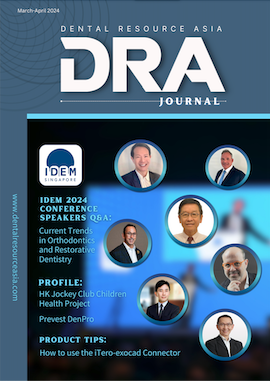Study Highlights Strong Connection Between Mothers’ Dental Plaque and Fungal Transmission
USA: A recent study suggests that poor dental hygiene in mothers significantly increases the likelihood of passing tooth decay to their children. Researchers found that women with high levels of dental plaque were eight times more likely to transfer the fungus Candida albicans, a common cause of tooth decay, to their children compared to those with better oral hygiene.
The Candida Albicans Connection
The study, conducted by researchers from Kuwait and the United States, focused on 160 pairs of mothers and children. The analysis revealed that in 94% of cases where both mothers and children had Candida albicans in their mouths, the strains were highly genetically related. The study specifically examined the fungus Candida auris, known for its easy transmission through close contact.
Maternal Influence and Key Risk Factors
Published in the journal PLOS One, the research emphasized a “strong maternal influence on children’s C. albicans acquisition,” identifying the mother’s oral hygiene as a key risk factor. Mothers with higher levels of dental plaque demonstrated a significantly increased risk of transmitting the fungus to their infants. The study also noted elevated risks for black children and those attending daycare.
 Click to Visit website of India's Leading Manufacturer of World Class Dental Materials, Exported to 90+ Countries.
Click to Visit website of India's Leading Manufacturer of World Class Dental Materials, Exported to 90+ Countries.
The findings underscore the importance of maternal oral health in preventing fungal transmission. The study advocates for targeted oral health education programs for mothers during pregnancy and post-birth. Such programs, the researchers suggest, “may prove valuable in preventing fungal transmission in early pregnancy.”
Tooth Decay Statistics and Previous Studies
In 2019, a survey of British five-year-olds revealed that almost 25% had tooth decay, with an average of three to four affected teeth per child. Another survey of three-year-olds showed that 11% had visible tooth decay, affecting an average of three teeth. Previous studies have indicated that exclusive breastfeeding reduces the likelihood of infants having microbial traces associated with tooth decay.
The study concludes that offering oral health education to mothers can play a crucial role in preventing fungal transmission during early pregnancy, potentially reducing the incidence of tooth decay in children.
Read the study: Multilocus sequence typing of Candida albicans oral isolates reveals high genetic relatedness of mother-child dyads in early life
The information and viewpoints presented in the above news piece or article do not necessarily reflect the official stance or policy of Dental Resource Asia or the DRA Journal. While we strive to ensure the accuracy of our content, Dental Resource Asia (DRA) or DRA Journal cannot guarantee the constant correctness, comprehensiveness, or timeliness of all the information contained within this website or journal.
Please be aware that all product details, product specifications, and data on this website or journal may be modified without prior notice in order to enhance reliability, functionality, design, or for other reasons.
The content contributed by our bloggers or authors represents their personal opinions and is not intended to defame or discredit any religion, ethnic group, club, organisation, company, individual, or any entity or individual.

